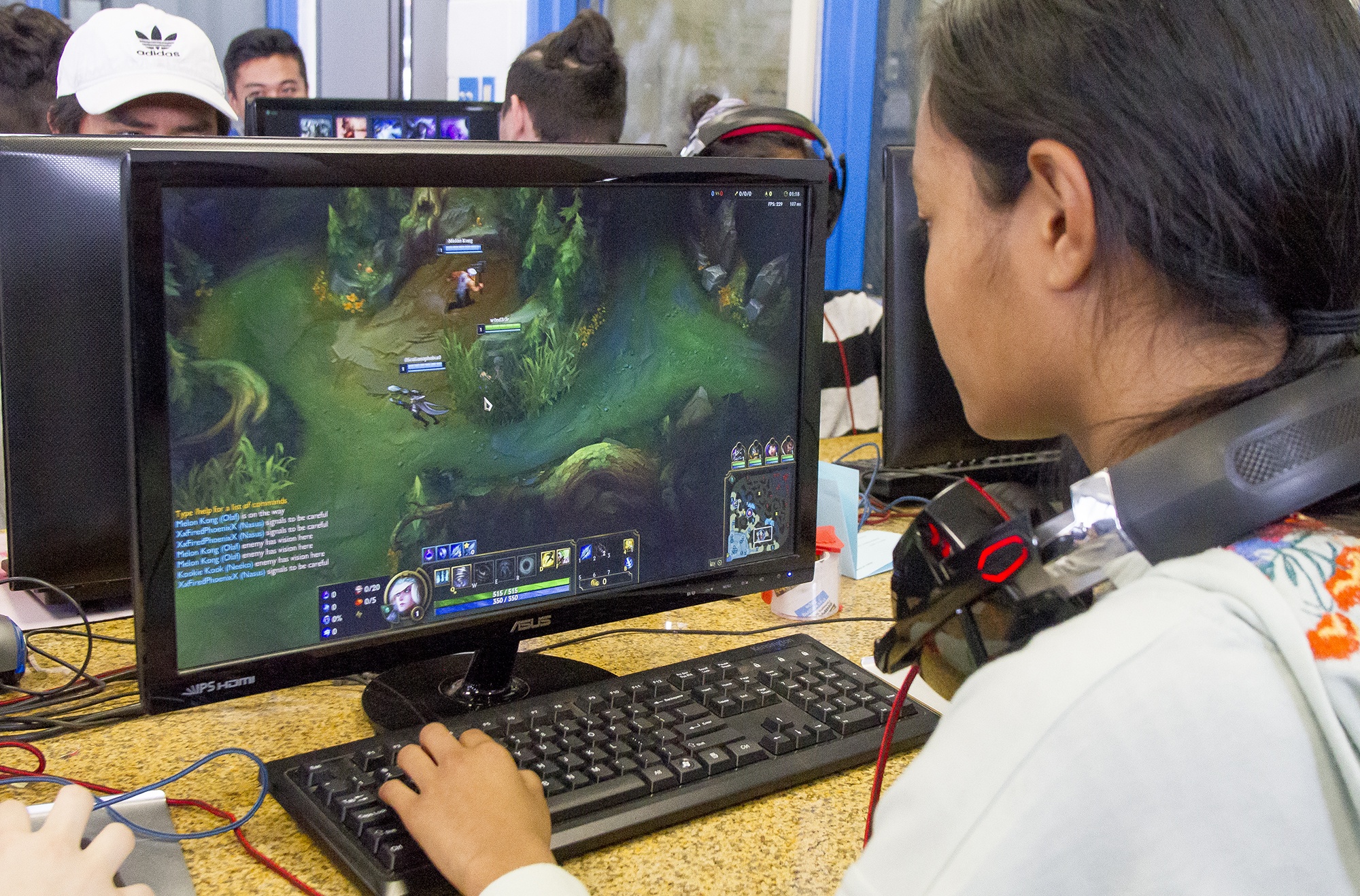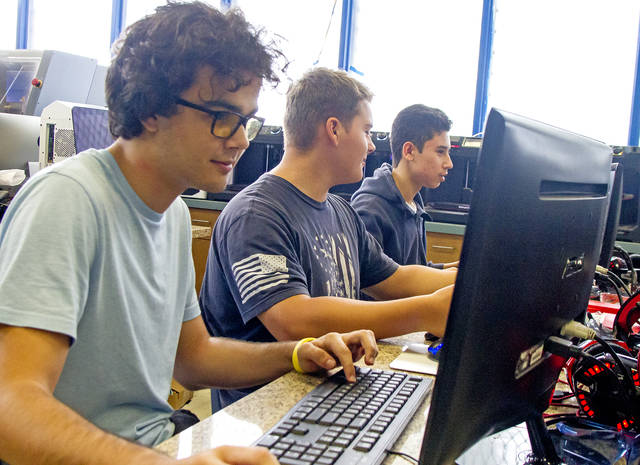KAILUA-KONA — Player Big Island has entered the game.
Schools across the state of Hawaii are throwing their headsets into the esports arena, and the Big Island is leading the way. Ten schools on the Big Island, including West Hawaii schools Kealakehe, Konawaena and Hawaii Preparatory Academy, have signed up for Hawaii High School Athletic Association’s inaugural season of esports.
The 10 schools are the most of any island, with a total of 23 schools in Hawaii signed on to play. With some success this season, the schools could be looking at esports becoming a permanent addition to the sports currently offered to students.
“Having my own past experience in sports, I know not everyone is able or even interested in doing what we typically see as the sports lineup and offerings through schools,” Kealakehe coach Nico Friedman said. “And one thing that’s really important is creating a space for students who have other interests and hobbies, creating that safe space for them to get together.”
The Waveriders play League of Legends every Tuesday, with three teams playing two consecutive matches against their opponents. Last week, the teams played against Pahoa, Kapaa on Kauai, and William McKinley on Oahu.
SMITE and Rocket League are also being played across Hawaii on Wednesdays and Thursdays, respectively, although Kealakehe does not participate in those two games currently. As of last week, 26 students at Kealakehe are registered to play League of Legends.
League of Legends is a multiplayer, online game where teams can play three different maps to work together to complete a set of in-game objectives before destroying the opposing team’s base. Players control characters, chosen every match, who each have a unique set of abilities.
“It’s a lot of fun to work with your friends and your teammates,” Kealakehe player Daniel Rogers said. “If you have a really good team, you’re able to work together to effectively get the objective and, in that way, it can be a ton of fun.”
Kealakehe is entering its fourth week of League of Legends play, and it’s been smooth sailing since making it through the first week of technical difficulties. The matches are played remotely from each team’s campus, through the PlayVS platform, which is used across the U.S. for high school esports.
“The kids really have a lot of fun with it,” Friedman said. “They’ve been playing against different schools, working together, researching the other schools and the other students, so I would say it’s been a pretty positive experience.”
The official rankings of schools has yet to be released, but Friedman sees the potential in his players to make it to the top of the rankings by the end of the school year. While he gives out advice and organizes the matches, the success of those matches depend on the players finding the time outside of school to practice.
“A lot of these guys play online at home, and I’m invited occasionally over Discord chat just to give them some pointers,” Friedman said. “And we meet every Thursday, but in terms of playing it’s really up to them to take that home.”
Unlike traditional sports, esports are not physically active, but they do require concentration and a skill set beyond what’s found in the average Mario Kart or Minecraft player. Most of the Waveriders currently playing League of Legends have a background in playing video games.
“I have played a bunch of games besides League of Legends,” Kealakehe senior Keoki Villasenor said. “For me, I just really like the game, its play styles and the many different characters you can choose.”
At Kealakehe, the matches appeal to both seasoned League of Legends players and those who have never played the game at all, like Jaylan Johnston, who, while experienced in other video games, played in her first League of Legends match last week.
“I like playing games. It’s a thing I’ve always enjoyed rather than regular sports,” Johnston said. “I found this by my friend that joined here, and I got interested.”
Like traditional sports, the sweat, tears and rage-quits of practice and regular season matches all lead up to the playoffs, where the Waveriders can represent their school for a chance at being No. 1 in the state. The regular season concludes April 22, with the postseason running through mid-May.
“Depending on the rankings in the final week, there will be a playoff, and only one team from each school can go,” Friedman said. “Even if two of our teams are ranked, we’d either have to battle it out or choose the one team to go.”
The creation of the new league is timely in the esports sphere.
Last week, ESPN announced the creation of the College Esports Championship. According to ESPN, hundreds of university teams will play in the new championship event, vying for a spot in the finals of the LAN Championship, held May 10-12 during Comicpalooza at the George R. Brown Convention Center in Houston.
Esports being played in high schools and universities are big leaps to make the game a legitimate sport.
“Esports has a bit of social stigma, especially with the idea that video games are very non-academic and they’re mindless violence,” Friedman said. “Especially with League of Legends, the kids talk strategy, they have to look at the statistics, and they have to know their team and the other team, so it’s really a group effort.
“It’s a really big opportunity for them to engage in that complex thinking and problem solving that we, as a school, really work on.”
For now, the Waveriders are taking it one match at a time. The players are learning to work as a team to hopefully get that top ranking.
Some important strategies are required, though.
“For the most part, it’s just making sure we keep in communication, making sure that we do the objectives when we need to, and not try to force anything if it’s not the right time,” Rogers said.
“And don’t die,” teammate Tyler Moore added.



